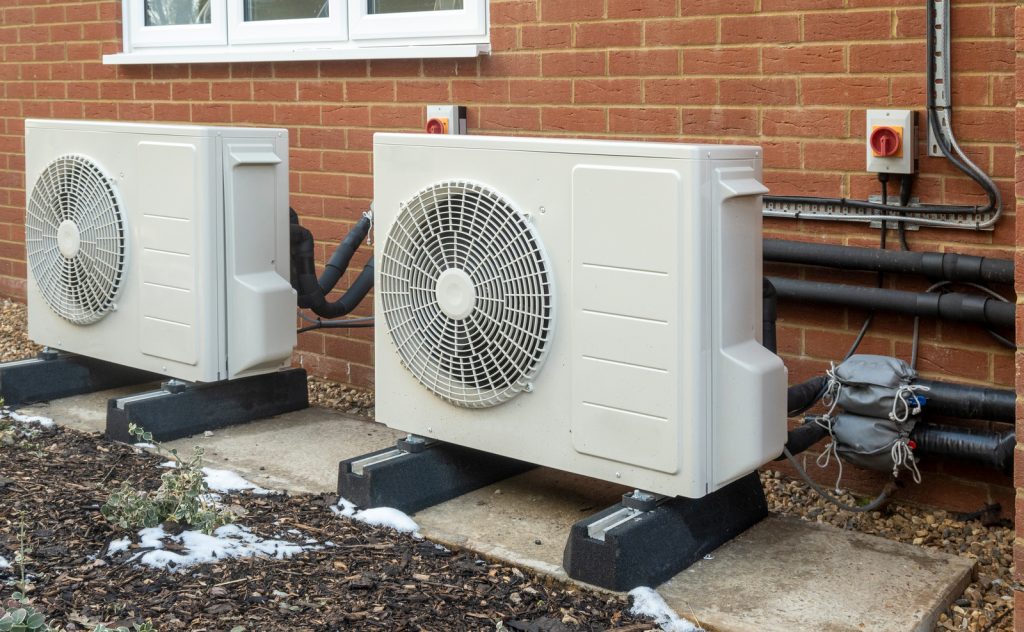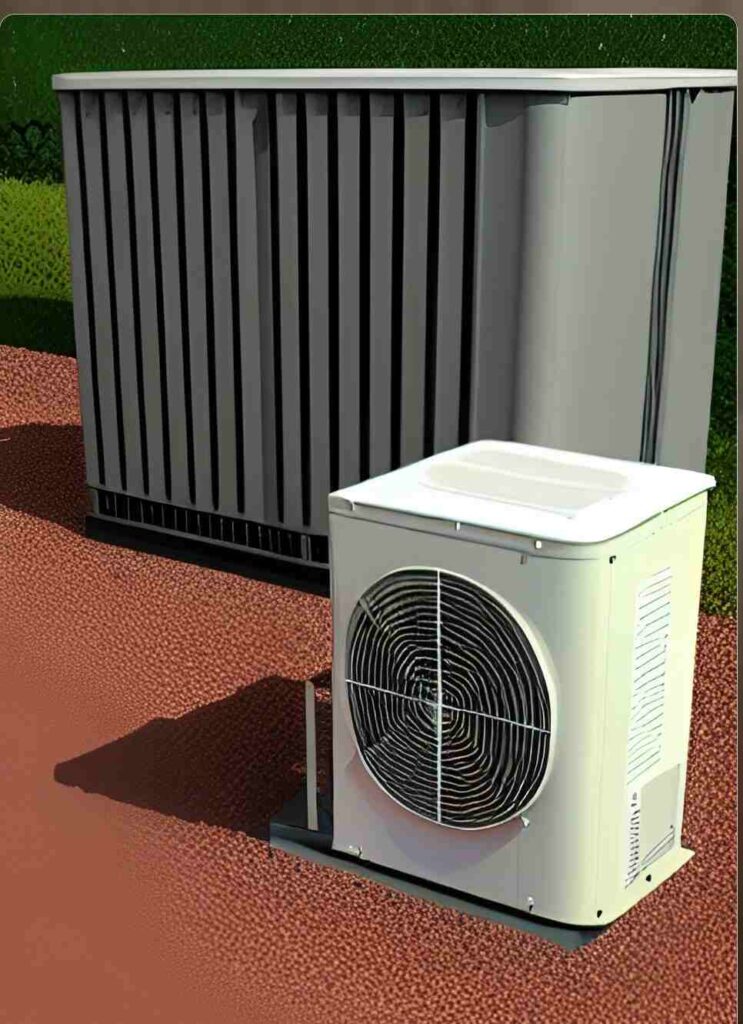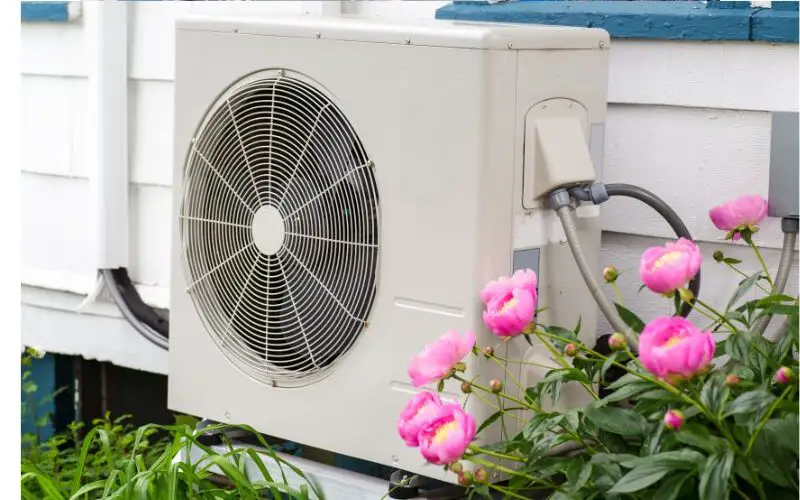Do you ever feel like your home is never quite as cooling or heating as you’d like it to be? Maybe you wake up every morning and can already tell that the day is going to be hot. Or, perhaps, night time is when the trouble really starts for you.
Either way, consider these two scenarios: You’re at the end of the month and your electric bill has been extortionate all week because all your appliances have been running non-stop. Or, you’re looking for ways to make your home more energy efficient in order to save money in the long run.

We are sure that if either of these sentences resonated with you then you will want to learn more about what options are out there for solving these issues, including heat pump systems.
What is a Heat Pump System?
A heat pump is basically a type of air conditioner that’s designed to move heat instead of air. The air is still kept circulating, but it’s cooled down and warmed up depending on what you choose.
So, these devices are often used in situations where you’re thinking of replacing your boiler for heating and if you want the option of keeping cool too and it’s too hot to use an AC. Another use that’s becoming more common is to heat your water.
You can use heat pumps to heat water so you don’t need to use a gas or electric tank boiler anymore.
This is a good option if you have a large enough water tank and have the right electrical system in place to power a heat pump. If you aren’t sure, you can always call an electrician or heat pump installer to see how feasible it is for you.
Types of Heat Pumps
When it comes to heat pumps, there are several different types. All of them are designed to work similar, but there are some slight variations in terms of their size and power. The two most common types of heat pumps are air source and ground source.
Air source get their heat from the ambient air in the atmosphere. They are less expensive (between £8000 and £15000) as the installation process is simpler and less labour intensive.
Ground source heat pumps source their heat from the ground and so cost more due to the extra installation, labour and time costs involved. These are in the region of £20000 to £35000 to install because of their complexity.
Air Source and Ground Source Efficiencies Compared
In terms of efficiency, the ground source heat pumps are better, having an efficiency performance rating of 4. This is because the temperature underground is constant between 8-12 degrees and so they run the year round.
Air source pumps on the other hand is affected by the weather, especially in the cold winter months as they have to work much harder to generate the heat. Their efficiency performance rating is usually between 2.5 and 3.
For a more detailed report on heat pump efficiencies, view the report here from the Renewable Energy Consumer Code.

Whether you choose to have an air source or a ground source heat pump will depend on your budget, the space you have available and whether you need and can obtain planning permission for the work.
Make sure you get a professional to come and assess your home to see which, if any, system is suitable for you.
How Do Heat Pumps Work?
Heat pumps work by taking the refrigerant out of the compressor and putting it in a heat exchanger that’s connected to the air conditioner unit. Once the air reaches this heat exchanger, the refrigerant turns back into a gas, and the air passes through it.
That refrigerant then moves through pipes and evaporates more water, which turns back into a liquid and then into a gas again.
The process happens over and over again until it eventually condenses back into a liquid, which then flows back out of the heat exchanger and into the air conditioner unit. The heat pump continues circulating that cooled air through the house until it reaches the indoor unit again.
Then, it cools the air down, which causes a certain amount of humidity in the air to go down as well. That is why you will often find that a heat pump will make the indoor air feel a lot drier than non-heated air. This is because the heat pump is also dehumidifying the air that comes through it as well.
Which Heat Pump System is Best for You?
Choosing a heat pump system is a bit like choosing which car is going to get you to your destination: it depends on where you are going, what kind of driving you do, and what you need your vehicle to do.
On hot days, when you don’t need cooling but you do need some relief from the heat, a heat pump is great. It’s more efficient than a traditional air conditioner and it doesn’t use electricity, so it’s cheaper to run.
As the seasons change and the weather gets colder, a heat pump is great for heating your home. It’s more efficient than gas boilers or electric heaters and doesn’t spew carbon dioxide into the air, so it’s great for the environment.
There are pros and cons to both electric and gas heat, depending on which one you choose. If you live in a drafty old home or you have very old electrical wiring, you may want to think twice before going for a heat pump.
Cooling with a Heat Pump
A heat pump system can also be used to cool your home by using refrigerant that is gas or liquid. These types of cooling units are ideal for cooling your home at night or on hot, sunny days when you don’t need cooling and you don’t want to use electricity.
A heat pump is usually more effective than an air conditioner at cooling your home because it doesn’t require you to keep opening the windows when it’s too hot outside.
The only downside to using a heat pump to cool your home is that heat pumps don’t do a great job at heating your home in winter.
So, if you need heating, you may want to consider a gas boiler or oil boiler.
Heating and Cooling Combination Systems
Another way to get the best of both worlds is to use a heat pump to heat your home in the winter and cool it in the summer with a fan. This will allow you to use some of your energy savings for things other than electricity, like a boiler or solar panels, for example.
This is a great way to save on your energy bills and protect the environment, while also having the comfort of being warm during the winter and cool in the summer.

Summary
A heat pump is a type of air conditioner that can be used to both cool and heat your home. It’s more efficient than both a gas boiler and an air conditioner and it doesn’t require very much electricity, so it’s cheaper to run. Heat pumps are also more environmentally friendly than traditional boilers and air conditioners.
There are several different types of heat pumps, and they can be used to heat your home, cool it, or heat and cool it at the same time. These are some of the ways a heat pump can be used.
